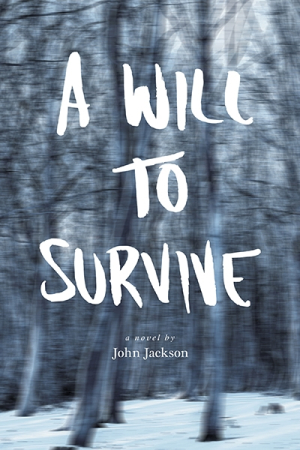It looks like you've stumbled upon a page meant to be read by our code instead of viewed directly. You're probably looking for this page.

A Will To Survive
This story is as much about the lengths we go to to survive as it is about finding a reason to do so.
In A Will to Survive, John Jackson examines four people’s lives that are irrevocably changed by a single simple equipment malfunction.
When their small aircraft crashes in the wilderness of Ontario’s vast boreal forest, all of the survivors are forced to explore their capacity for innovation, cooperation, and sheer perseverance, knowing it is unlikely they will be rescued by anyone but themselves and one another.
“The black flies were ferocious, but no one took notice. They were alive, and that was, for the first time in a long time, something they could not take for granted,” Jackson writes. The small but bloodthirsty insect acts as a stand-in for the always present, but rarely thought of, danger of traveling from domesticated civilization into the bush and helps set the stage for this tale of humans versus the wilderness.
In crafting this tale, Jackson skillfully avoids anthropomorphizing or overly metaphorizing the nonhuman animals, casting them as competitors (and in one shining example, a collaborator) in survival. Though the omniscient narrative perspective offers insight into each character’s experience, this comes at a sacrifice of emotional depth. These people worry, love, and find joy, but such realities are most often described in practical terms, much in the same way as is the more functional action.
Dialogue as a revelatory technique is perhaps underused, and unlike in other survival stories, the reality of coexisting and problem-solving with complete strangers seems not to intensify or deeply challenge the characters. They are pragmatic, to an almost unbelievable degree. While their physical stamina is frequently tested, Jackson’s characters seem to have little trouble maintaining mental health despite the severity of their situation.
Although the various acts of day-to-day survival, including the procurement of food and the building of shelters, are perhaps described in more detail than is necessary after a certain time, this repetition in the writing reflects the somewhat mundane and monotonous nature of staying alive in the bush. It is amid these seemingly innocuous, predictable tasks that the smallest mishap can become tragedy, instantly altering the presumed course of events.
Reflective too of the sheer persistence that is required to do the same tasks time and again, and simply to find enough shelter and sustenance to keep oneself alive, this repetition reflects awareness of the elemental variations and the details that would be relevant to the protagonists: abundance is valued and laid away for the lean times, and rationing becomes dreadful and tiresome.
Engaging and illustrated throughout with actual survival tactics adapted from traditions of local indigenous peoples, A Will to Survive is as much a story about the lengths people would go to in order to extend their own lives as it is about the reasons they find to do so. Ultimately, Jackson’s survivors fight to make the empty places they have left in the hearts of their loved ones whole again.
Reviewed by
Patty Comeau
Disclosure: This article is not an endorsement, but a review. The publisher of this book provided free copies of the book and paid a small fee to have their book reviewed by a professional reviewer. Foreword Reviews and Clarion Reviews make no guarantee that the publisher will receive a positive review. Foreword Magazine, Inc. is disclosing this in accordance with the Federal Trade Commission’s 16 CFR, Part 255.